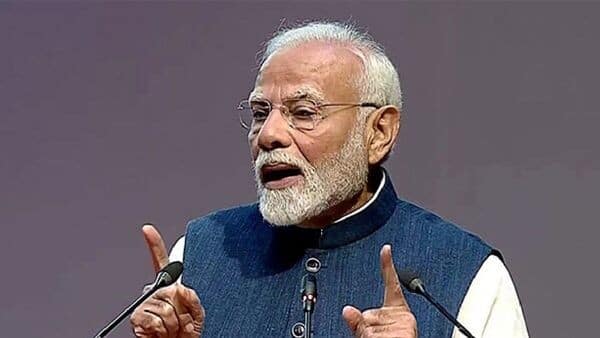
Modi to visit Kuwait; first by Indian PM in 43yrs
What's the story
Prime Minister Narendra Modi will visit Kuwait on December 21-22, the first visit by an Indian prime minister to the Gulf nation in 43 years.
The last Indian PM to visit Kuwait was Indira Gandhi in 1981.
According to the Ministry of External Affairs, the trip will strengthen the multifaceted ties between India and Kuwait, which are deeply rooted in historical and economic connections.
Diplomatic talks
PM Modi's agenda during Kuwait visit
During his two-day stay, PM Modi will discuss with Kuwaiti leadership, including Sheikh Meshal Al-Ahmad Al-Jaber Al-Sabah, the Amir of Kuwait.
He will also meet the Indian community in Kuwait, which constitutes the largest expatriate group in the country.
"India and Kuwait share traditionally close and friendly relations which are rooted in history and have been underpinned by economic and strong people-to-people linkages," the MEA said.
Economic ties
India-Kuwait: Significant trading partners
Kuwait is among India's top trading partners, with bilateral trade amounting to $10.47 billion for the financial year 2023-24.
The Gulf nation is also India's sixth-largest crude supplier, meeting 3% of its energy requirements.
Indian exports to Kuwait have reached a record high of $2 billion, while investments by the Kuwait Investment Authority in India exceed $10 billion.
Diplomatic invitation
Invitation and postponed visit to Saudi Arabia
The visit was planned after Kuwaiti Emir Sheikh Meshal invited PM Modi, through Kuwait's Foreign Minister Abdullah Ali Al-Yahya, during the latter's recent visit to New Delhi.
Al-Yahya called India a "very important partner" and praised PM Modi as "one of the wisest persons worldwide."
The MEA hopes this visit will give a "fresh momentum" to bilateral ties between India and Kuwait.
Bilateral cooperation
MoU signed for Joint Commission for Cooperation
Earlier this month, a Memorandum of Understanding (MoU) was signed to set up a Joint Commission for Cooperation (JCC) between India and Kuwait.
The JCC will cover areas including trade, investment, education, agriculture, technology, security, and culture.
The MEA stressed that both countries are committed to supporting each other with energy and food security requirements while expressing a firm commitment to deepen bilateral ties for mutual benefit.